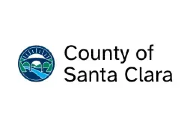
Children's Agenda
About the Children's Agenda
The Santa Clara County Children’s Agenda Network (CAN) is a county-wide network of cross-sector leaders committed to working together to improve outcomes for children, youth and families. We accomplish this collectively, by sharing knowledge, aligning and coordinating resources, and using data and research to inform decision making, guide program and policy improvement, and drive results.
RSVP to the Children's Agenda Network Meetings HERE!
CAN Meetings FY 2025-26:

-
Sept 8 (2nd Mon), 2025, 12pm-2pm – "Every Child Safe & Stable"
-
Location: SSA Pioneer, Mt. Pleasant, & Prospect Rooms (353 W Julian St.)
-
Data: Real Cost Measure, Food Security, Housing Stability
-
Presentation Slides; SCC Impacts of Federal Budget Cuts; Community Feedback Form,
-

-
Nov 12 (2nd Wed), 2025, 12:30pm-2:30pm – "Every Child Healthy"
-
Location: SSA Oak Grove and Gunderson Rooms (353 W Julian St.)
-
Data: Anticipated and current impacts of the upcoming federal budget cuts on SCC youth and family health and basic needs, Latino youth health, Prenatal Care, Pediatric Access, Dental Health, and Social Emotional Wellbeing/ Youth mental health.
-
Resources: Presentation Slides; Impacts of Federal Budget Cuts on Children and Families; Immigration FAQ from DFCS for Child Welfare; Community Feedback Form,
-

-
Feb 11 (2nd Wed), 2026, 12pm-2pm– "Every Child Successful in Learning"
-
Location: SSA Pioneer, Mt. Pleasant, & Prospect Rooms (353 W Julian St.)
-
Data: Kindergarten Readiness, Third Grade English Language Arts Standard, Eight Grade Math Standard, Chronic Absenteeism, School Suspension Rates
-
Resources: Presentation Slides; Community Feedback Form,
-

-
June 3 (1st Wed), 2026,12pm-2pm - "Every Child Thriving in Life"
-
Location: SSA Auditorium (333 W Julian St)
-
Data: Graduation Rates, Enrollment in post-secondary education, Career and College readiness, Stable Employment and Positive Net Worth
-
Join Today!
Annual Membership provides continuous enrollment and is valid each year from May through April.
Annual Membership Dues are included with Children's Summit Sponsorship, but may be paid for separately below. Click here to become a Children's Summit Sponsor today!
MISSION
Kids in Common advocates for education, healthcare, social-emotional wellbeing, and justice for all children in Santa Clara County by supporting policies, promoting data-driven action, and fostering collaborations of cross-systems leaders and experts.
VISION
Every Child...
Safe & Stable
Successful in Learning
Healthy
Thriving in Life
Values and Principles of Action
Our Values
Every Child Matters
Every child should have an equitable pathway to a healthy and successful life. We cannot allow race, poverty or zip code to be a barrier to success nor define opportunity. The potential of our children is a resource we cannot afford to waste.
Community
We focus on what connects us rather than what separates us and communicate to each other with transparency and integrity
Focus on Families
Children thrive in healthy families and our work should be focused on strengthening families to support the healthy development of their children. Healthy families build the next generation of healthy children and families.
Courage
We have the tough conversations that no one likes having and take risks in pursuit of improving outcomes for children, youth and their families.
Principles of Action
Targeted Universalism
We have common goals for all our children and recognize the need to redesign our structures to address the specific barriers to opportunity that exist between differently situated populations.
Continuous Improvement
Disciplined and relentless commitment to improved results and to narrowing racial and economic disparities.
Strategic Action
Aligning efforts and resources to magnify impact within my organization and in partnership with other organizations.
Equity
We must recognize and address structural and institutional racism, discrimination, harassment, and biases across systems that contribute to inequitable outcomes for children and their families.
Results Focused
Using data and evidence to tell us whether we are successful in our individual organizations’ work as well as at the community level.
Stakeholder Engagement
Ensuring those affected by the decisions are involved in making them.
Children's Agenda Network
Children’s Agenda Network members have agreed to the values of the Children’s Agenda
and to advance its goals by focusing on equity, results and collaboration.
Children’s Agenda Network Co-chairs

Mary Ann Dewan, PhD* - Chair, Kids in Common
Community Leader

Judge Leonard Edwards* - Vice Chair, Kids in Common
Retired, Santa Clara County Superior Court

Fernando S. Mendoza, MD, MPH* - Kids in Common Board of Directors
Professor of Pediatrics, Emeritus and Emeritus Associate Dean of Minority Advising and Programs, Stanford University School of Medicine
Children’s Agenda Network Members
Linda
Lenoir
Patrick
Tondreau
Marlene Zapata*
- Kids in Common Board Member
Mary Cheryl B
Gloner
KIC Board
Fernando
Mendoza
Stanford University
Leonard Perry
Edwards
Mary Ann
Dewan
Jamie
Wang
Kids In Common Treasurer
Marlene
Zapata
KIC Board
Member Organizations
* Member of the Children’s Agenda Leadership Council























































